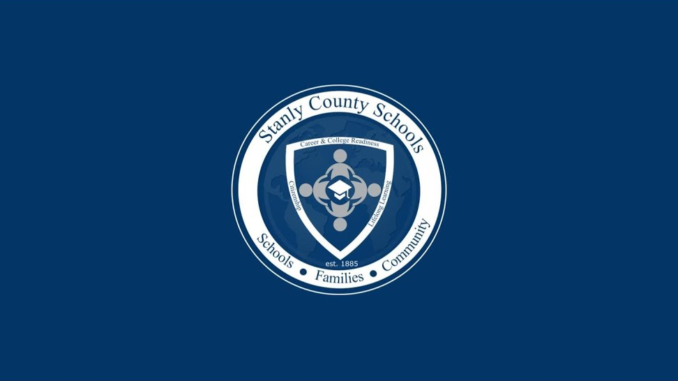
ALBEMARLE — At the Feb. 2 meeting of the Stanly County Board of Education, the board took some time to honor local football star B.J. Hill, who will soon play in the Super Bowl for the Cincinnati Bengals; approved the final version of the year’s budget; selected board member Carla Poplin to represent them at the N.C. School Boards Association legislative committee; and discussed the district’s success in its Career and Technical Education program; but COVID-19 policy discussions still dominated the evening.
After beginning the meeting by discussing Hill and how excited those in the school system were to have had a hand in his success, the board broke for a closed session. They then allowed public comment, much of which centered around COVID policies.
While some of those commenting were not happy with certain policies, there was loud applause when the board voted to continue the policy that masks will be optional in district schools. The motion was made by Poplin and seconded by board member Anthony Graves. It was then unanimously approved.
Superintendent Jarrod Dennis gave his regular report immediately before the vote and discussed the state of things regarding COVID-19 in the district. He said there had been a lot of cases before the MLK holiday, and this caused many schools to have to go remote. He said there were still a lot of absences among staff and students.
“There was a lot of stress on staff, especially covering classes; and stress on students; and stress on families, especially those who have to help find childcare when you close a school,” Dennis said of the impact of the remote days during the spike.
Dennis said that these numbers are now going back down, “which is a good sign.” But he did say that they still had a lot of issues with learning loss and staffing due to the spike and remote days.
“Our teacher absences are up,” Dennis said, comparing the absences to spikes from a year before. “They’re up from 253 [in 2021] to 406 [in 2022] during that same span from the 24th to the 31st.”
Dennis then said an additional issue related to the absences is the “low sub-fill rate,” saying the rate on finding a substitute teacher was 100% a year ago and only 58% now. He thanked the staff, both certified and classified, for filling in where needed in what he called a very busy week. Dennis said they couldn’t “keep going down that path anymore” if there were another spike, though, saying they needed to work out different solutions so there wouldn’t be half the students out of certain classes and large-scale teacher absences.
One new method they are employing to reduce quarantines and to keep students physically present in schools is the “test to stay” protocol. This requires students who have been exposed to COVID to take a test to see if they are positive for the disease. If they are, they are sent home, but those who are not can continue attending class. Previously, students were required to quarantine if they were exposed, even if they never developed symptoms.
Dennis said test-to-stay would be a “mitigating factor” during future spikes, but it’s only been in place for one week, and it was only used on staff and athletes at first. In the initial numbers for athletic teams, 100% tested negative and were allowed to remain in school. Dennis said it was a lot of work to do all the testing, but in the future, EMT’s will help with the process.
To close, he said this new testing protocol was important because, “There is no substitute for in-person learning, and we do need our kids in school.”
Regarding the lower substitute-teacher fill-rate, one of the citizens who made a public comment during the meeting gave some insight into why these numbers may be low. He said to become a substitute teacher, he was instructed to pay for his own background check and medical tests, and then told the rate would be $80 a day, or, as he put it, $10 an hour. The man said this would put his wage lower than his students who worked at McDonalds, which has a starting pay over $12 per hour.
Graves, during board comments at the end of the meeting, said these concerns about low pay were valid, and they were working on how to raise substitute-teacher pay to make the job more attractive.
